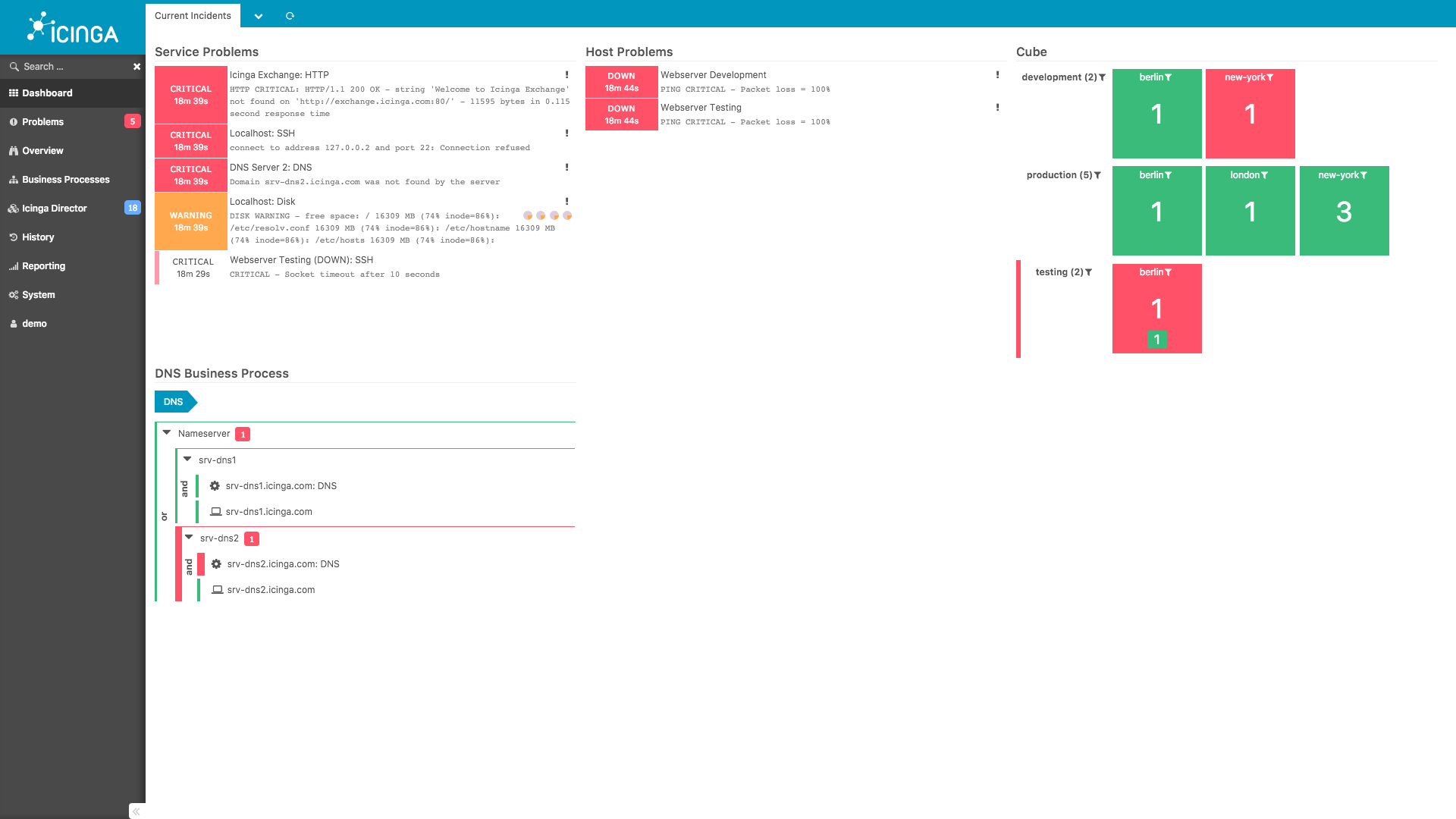CalcEventID's internal logic uses the TimestampToMilliseconds function to convert the given eventTime to milliseconds. Within this function, the timestamp is capped to prevent an overflow. On three occasions, the input timestamp given to CalcEventID had already been converted using TimestampToMilliseconds. The second TimestampToMilliseconds function then checked the value and always returned the capped maximum value. Consequently, CalcEventID returned the same hash value for different timestamps. This affected SendFlappingChange, SendAcknowledgementSet, and SendAcknowledgementCleared. For example, when two acknowledgments were created for the same service, the calculated event_id representing the history table row would be identical. Fixes #10465
Icinga 2
Table of Contents
About
Icinga is a monitoring system which checks the availability of your network resources, notifies users of outages, and generates performance data for reporting.
Scalable and extensible, Icinga can monitor large, complex environments across multiple locations.
Icinga 2 is the monitoring server and requires Icinga Web 2 on top in your Icinga Stack. The configuration can be easily managed with either the Icinga Director, config management tools or plain text within the Icinga DSL.
Installation
- Installation
- Monitoring Basics
- Configuration
- Distributed Monitoring
- Addons, Integrations and Features
- Troubleshooting
- Upgrading
Once Icinga Server and Web are running in your distributed environment, make sure to check out the many Icinga modules for even better monitoring.
Documentation
The documentation is available on icinga.com/docs.
Support
Check the project website for status updates. Join the community channels for questions or ask an Icinga partner for professional support.
License
Icinga 2 and the Icinga 2 documentation are licensed under the terms of the GNU General Public License Version 2, you will find a copy of this license in the COPYING file included in the source package.
In addition, as a special exception, the copyright holders give permission to link the code of portions of this program with the OpenSSL library under certain conditions as described in each individual source file, and distribute linked combinations including the two.
You must obey the GNU General Public License in all respects for all of the code used other than OpenSSL. If you modify file(s) with this exception, you may extend this exception to your version of the file(s), but you are not obligated to do so. If you do not wish to do so, delete this exception statement from your version. If you delete this exception statement from all source files in the program, then also delete it here.
Contributing
There are many ways to contribute to Icinga -- whether it be sending patches, testing, reporting bugs, or reviewing and updating the documentation. Every contribution is appreciated!
Please continue reading in the contributing chapter.
If you are a packager, please read the development chapter for more details.
Security Issues
For reporting security issues please visit this page.


